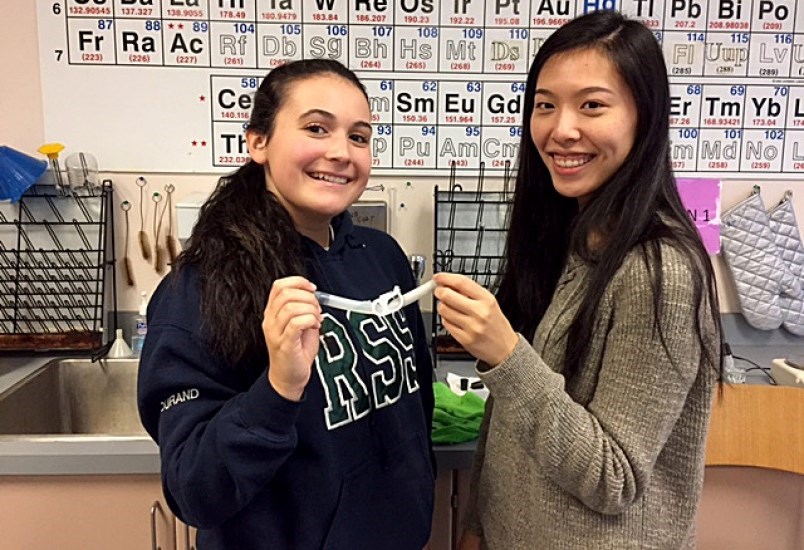If your kid seems unusually interested in space flight and is daydreaming about being an astronaut on one of Elon Musk’s space crafts, it’s probably homework.
School District 43 (SD43) has just announced that Coquitlam-area schools will be participating in a months’ long competition to come up with micro gravity science experiments that could, if selected, be conducted by real astronauts in space.
SD43 is the only Canadian school district selected to take part in the Student Spaceflight Experiments Program (SSEP) run by the National Center for Earth and Space Science Education (NCESSE).
SD43 students first sent an experiment to space in spring, 2017 as part of Mission 11. In that flight, Riverside Secondary School students Alexa Durand and Brenda Shen saw their experiment for studying the curing rate of concrete in a weightless environment tested by astronauts on the International Space Station.
Over the coming months, students from grades 5 to 12 will work in teams to create and submit their proposals. The winning proposal will be selected on Dec. 16.
The experiment will be part of the SSEP Mission 16 payload to the ISS and is currently planned to launch on a SpaceX rocket from Cape Canaveral Air Force Station in Florida, adjoining the Kennedy Space Center, late spring 2022.
SpaceX is owned by technology entrepreneur Elon Musk.
On Saturday, Sept. 18, four citizen astronauts travelling on Musk’s SpaceX Inspiration4 safely splashed down in the Atlantic off Florida's coast, after completing a three-day flight of the first all-civilian crew ever sent into Earth orbit.
Still, while SD43 students' space dreams may be a bit far off, space travel is not out of the question.
Meanwhile, funding has been provided by the SD43 Education Foundation as well as supporting organizations including Simon Fraser University and Magellan Aerospace (a Canadian national partner on SSEP).
“Integrating STEAM curriculum in the classroom is a focus in SD43 as identified in our guiding document, Directions 2025,” stated board chair Kerri Palmer Isaak, who is also an Anmore/Belcarra trustee.
“I am excited SD43 students will be able to participate in this incredible once-in-a-lifetime opportunity to create an applied science experiment that will actually be carried out in space.”





